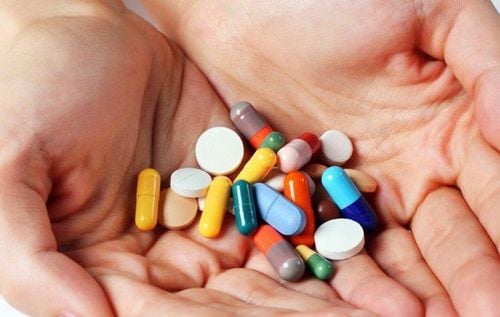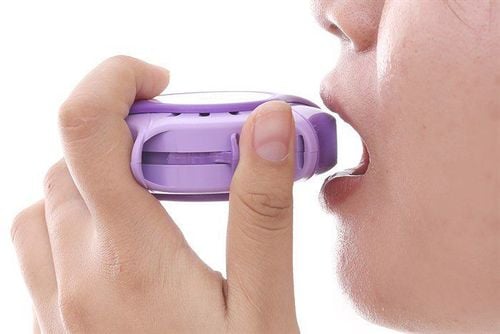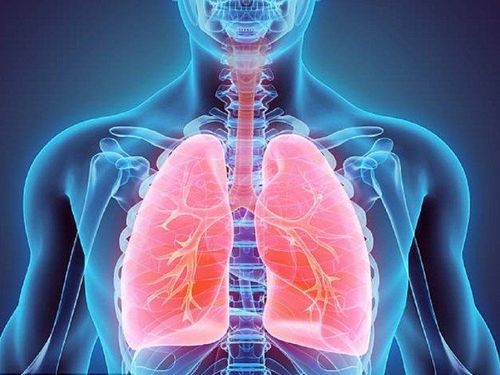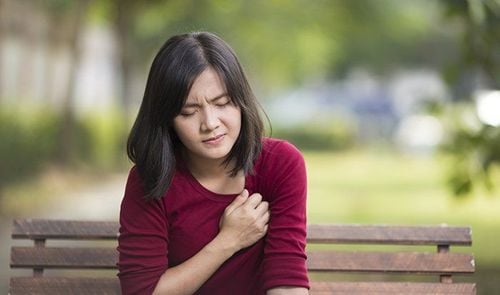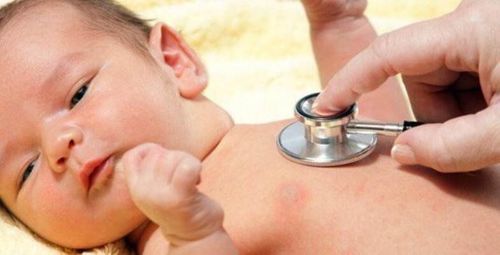This is an automatically translated article.
The article was professionally consulted by Specialist Doctor II Tran Thi Linh Chi - Head of Pediatrics - Neonatology Department - Vinmec Hai Phong International General Hospital.Pneumonia is a condition in which the lungs are damaged due to the attack of bacteria, viruses, parasites.... They multiply, multiply and create bacterial infections in the lungs. When an infant has pneumonia without early detection and timely treatment, it can lead to dangerous complications, even death. The following article will provide detailed instructions on how to take care of a newborn with pneumonia, help the child recover quickly and avoid complications that may affect the child's development later.
1. Pneumonia in infants
Pneumonia is a common disease in infants and young children, most commonly in children under 3 years of age (over 80%), of which 65% are under 12 months of age.
Pneumonia in neonates often appears early, from 12 hours to a few days after birth, with rapid and severe progression. Unlike pneumonia in older children, the typical symptoms are high fever, cough, and hissing sound. In neonates, because the respiratory tract is not fully developed, clinical symptoms are often unclear and easily overlooked.
Initial symptoms of pneumonia in infants often have signs such as:
The baby is suckling poorly or stops feeding Fever over 37.5 degrees Celsius or hypothermia. The child is breathing rapidly more than 60 times in 1 minute or has difficulty breathing. When there are obvious symptoms, the disease is already in a serious development: The child has a fever or hypothermia, lethargy, poor feeding or stops feeding, vomiting a lot, abdominal distention, difficulty breathing, chest indrawing, cyanosis... Therefore, parents or relatives need to pay attention to the child's condition in order to detect early signs and take the child immediately to a medical facility for timely examination and treatment to avoid serious complications of pneumonia.
Pneumonia in newborns, if not treated promptly, can cause many dangerous complications that affect the child's development later on, such as: meningitis, blood infection, empyema, effusion. pericardium, heart failure, antibiotic resistance, underdeveloped rickets.
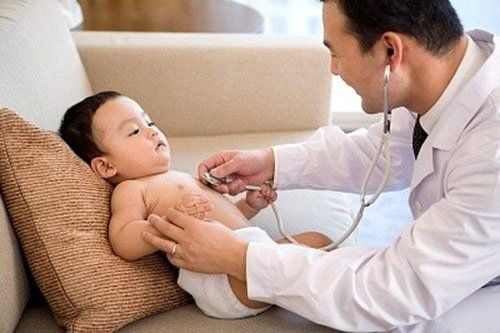
2. How to take care of a newborn with pneumonia
The choice of medicine to treat a child with pneumonia depends on the cause of the disease and is decided by the doctor. Parents absolutely cannot buy antibiotics and cough suppressants for their children at home. Antibiotics will not work in the case of a child with viral pneumonia. Cough is a good reflex to expel sputum from the airways and clear the airways, so do not give cough suppressants to children without a doctor's prescription.
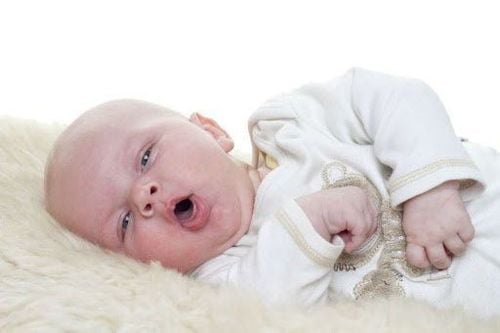
Some effective care that parents can do to help their newborn recover quickly are as follows:
Reduce fever for the child Actively warm compresses (the temperature of the water is determined by dipping the adult's elbow in it). basin of water, feel warm is okay). If the child has a fever above 38.5 degrees Celsius, give the child fever-reducing medicine as prescribed by the doctor. Chest patting and effective secretion of sputum should be performed on an empty stomach, preferably before a meal or as early as 1 hour after eating to avoid causing vomiting. Parents can conduct chest patting several times a day. Pay attention to sucking sputum from the baby's nose and throat before and after pulsating the chest. Take off tight clothing from the young person and place the child in an appropriate position, parents need to remove the ring, watch and bracelet, and then perform the following steps in turn:
You cover the child with a thin cloth (if the child is shirtless), avoid patting the skin directly. Bend your hand at the wrist and cup it. Keep the thumb pressed against the index finger. When you slap your chest, you will hear a hollow, popping sound caused by air trapped between your cupped palms and your ribcage. If the sound is flat, like when clapping, then you need to check because your hand may not be bent enough. Clap properly does not cause pain. Correct hand position for chest patting When pacing, you only need to move your wrists, not your arms and shoulders. Clap to the right and then to the left. Take care not to hit the stomach, sternum or spine. Continue patting firmly and steadily, but not too vigorously, for about 3-5 minutes in each area.
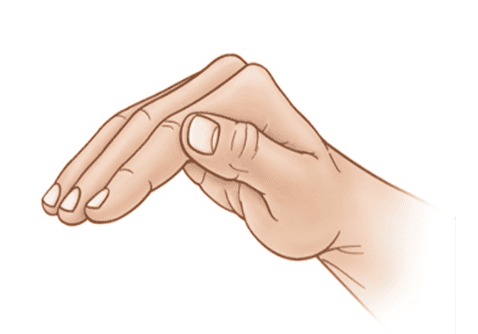
Hygiene and diet for children Should use a soft tissue to wipe the nose, drool, and then dispose of the tissue immediately after use. If using a bucket towel, pay special attention to keeping the towel clean. The repeated use of bucket towels that have been contaminated and have not been washed will create conditions for bacteria and viruses on the towels to return to the child's body. Should clean the house, toys, children's utensils. Caregivers need to wash their hands thoroughly when caring for and preparing food for children. Give your child nutritious, liquid, soft, easy-to-digest and easy-to-swallow foods. Feed children according to their needs, divide them into many meals a day and the amount of each meal is less than usual, do not force them to eat all the food that you have prepared. You can use steamed kumquats with honey, steamed roses, ginger, and lemon for children to drink to relieve cough.
Trắc nghiệm: các chỉ số cần chú ý về sự phát triển thể chất của trẻ
Chiều cao, cân nặng của bé ở từng giai đoạn nên là bao nhiêu là bình thường, bao nhiêu là bất thường? Cùng ThS.BS Ma Văn Thấm điểm lại xem bạn đã nắm được các chỉ số phát triển thể chất của bé chưa nhé!The following content is prepared under supervision of Thạc sĩ, Bác sĩ y khoa, Ma Văn Thấm , Nhi , Phòng khám Đa khoa Quốc tế Vinmec Dương Đông(Phú Quốc)
Disease prevention Clean, avoid spreading, do not smoke, cook in the room with small children. Avoid letting children come into contact with sick people to avoid spreading the epidemic. The place should be light and airy. Take your children to be vaccinated fully and on time with vaccines such as pneumococcal, flu, diphtheria - pertussis - tetanus... Early detection of early manifestations of respiratory infections in general in children such as: : cough, fever, runny nose, shortness of breath and other disorders such as diarrhea, poor appetite, abort feeding, slow weight gain.....for prompt care and treatment. Children should be breastfed immediately after birth to 2 years old for comprehensive development and good resistance. Pneumonia is a common disease and one of the main causes of death in children. The younger the child, the higher the mortality rate from pneumonia. Therefore, as soon as you see a child showing signs of suspected disease, take the child to a medical facility for examination and timely treatment. Hopefully this article is useful for parents to have the most appropriate way to care for their newborn to help them recover quickly and avoid dangerous complications.
Pediatrics department at Vinmec International General Hospital is the address for receiving and examining diseases that infants and young children are susceptible to: viral fever, bacterial fever, otitis media, pneumonia in With modern equipment, sterile space, minimizing the impact as well as the risk of disease spread. Along with that is the dedication from the doctors with professional experience with pediatric patients, making the examination no longer a concern of the parents.
Please dial HOTLINE for more information or register for an appointment HERE. Download MyVinmec app to make appointments faster and to manage your bookings easily.






